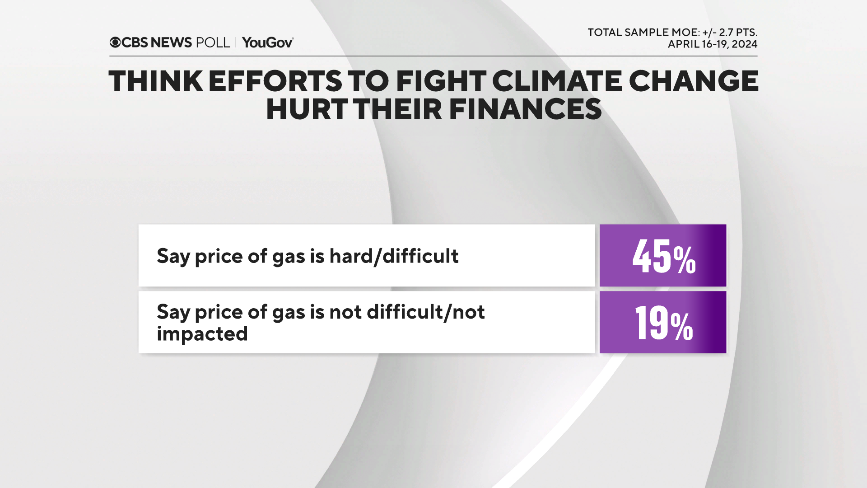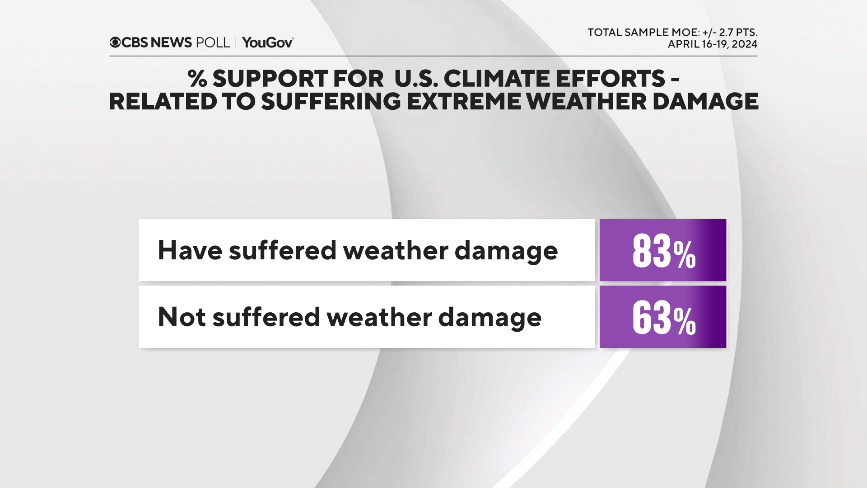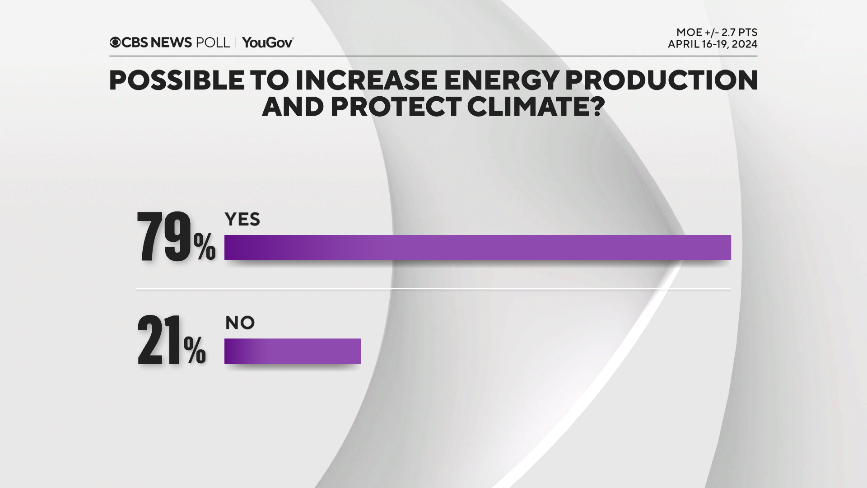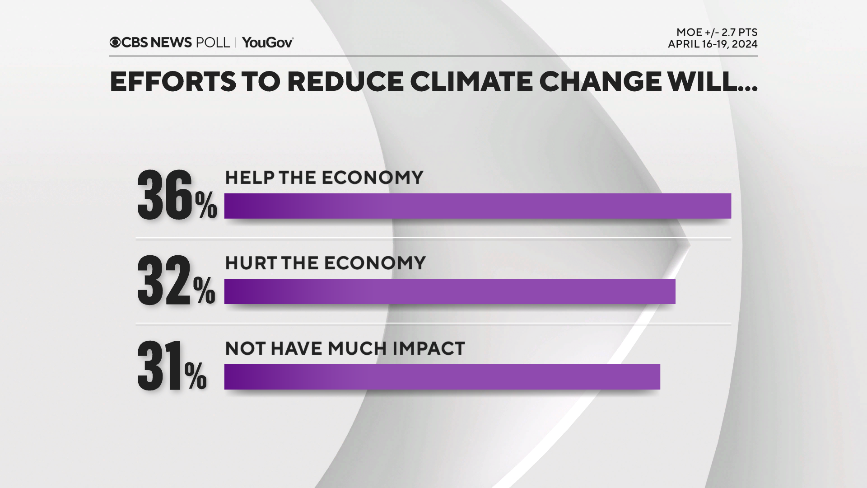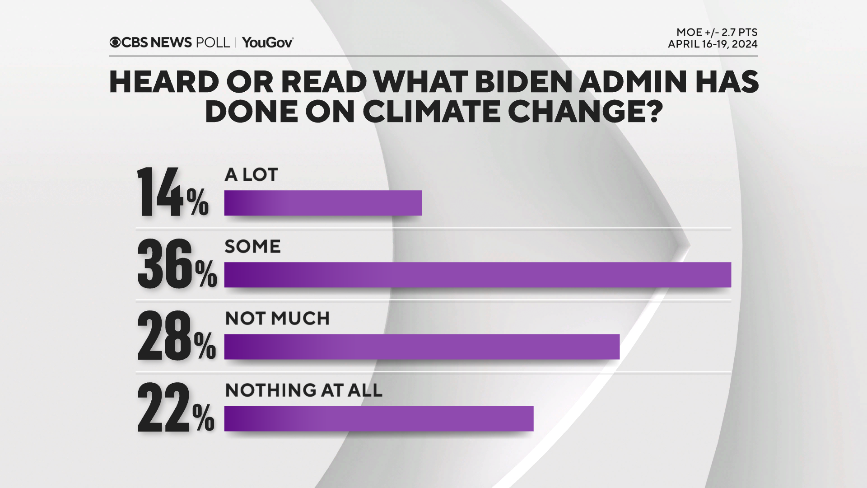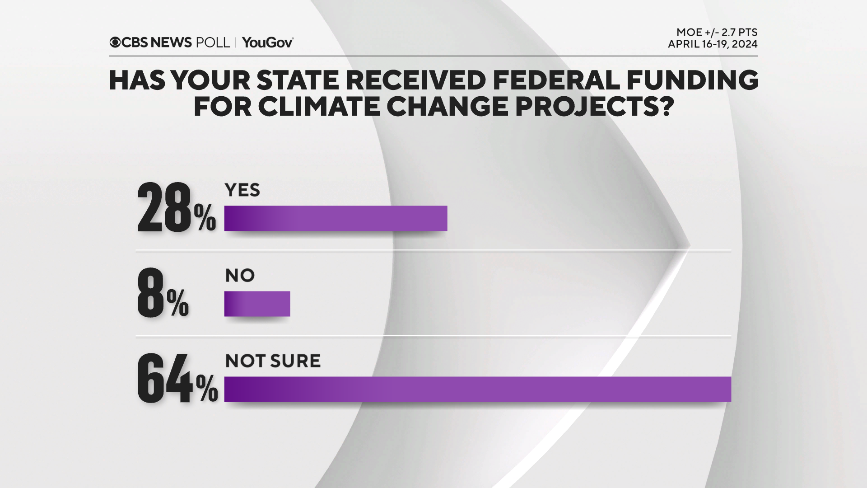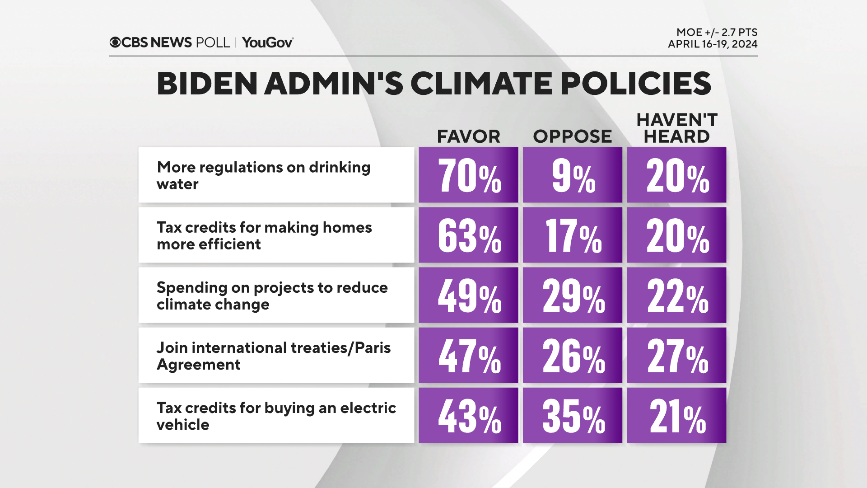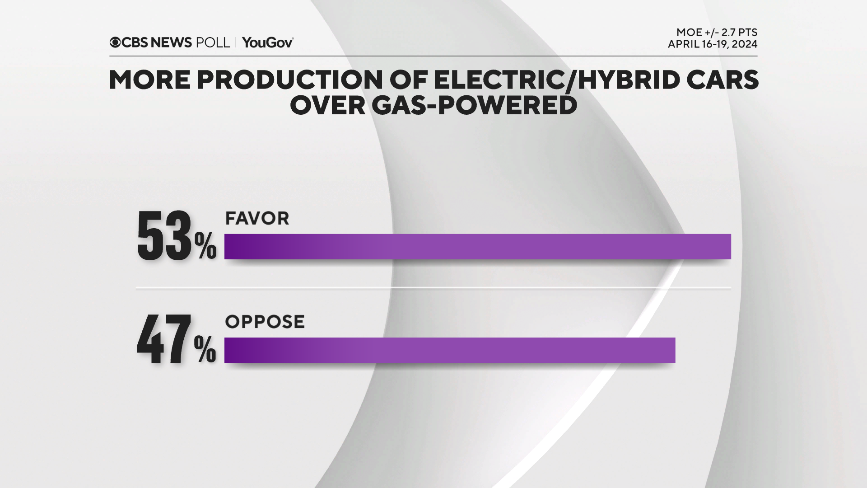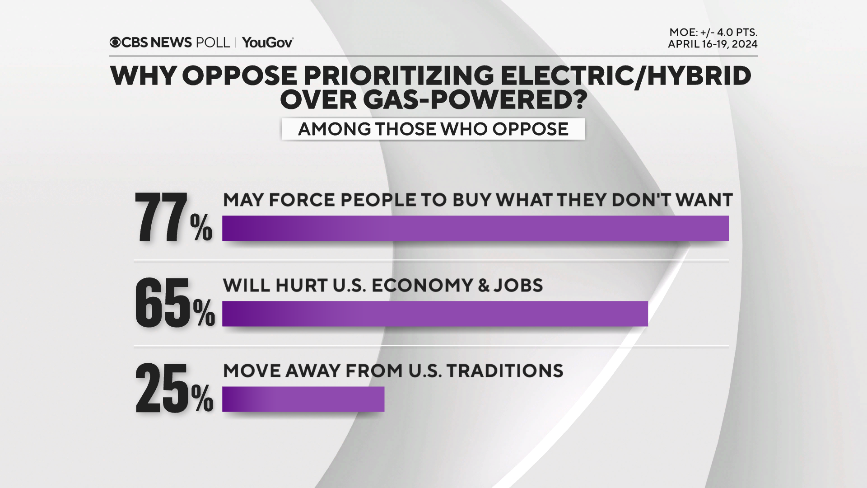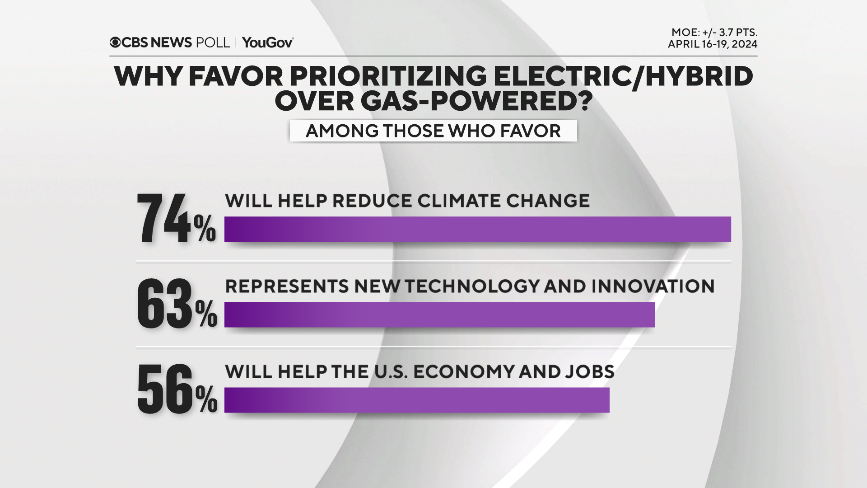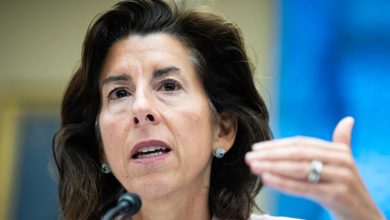
For many years the fight against climate change has been presented, at least in political debates, as a question that involves an economic trade-off: could we afford to do it, even if we otherwise think it is a good idea, or would it cost jobs and money in the near future? a world so dependent on fossil fuels?
This framework continues today in many ways – particularly on a personal and even macro level.
People are much more likely to oppose U.S. efforts to combat climate change if they think it will hurt their personal finances.
In fact, the majority of those who think efforts to reduce climate change will harm them financially are opposed in principle to the United States taking action on climate change, even if the rest of the country opposes it. strongly.
Additionally, these Americans extrapolate and believe that the shift to renewable energy, in particular, hurts the U.S. economy and jobs.
So who are they? On the one hand, these people seem very sensitive to the price of gasoline – which is perhaps one of the most immediate ways to measure impact. If they say the price of gas has been a hardship or difficulty for them, they are – by a double-digit difference – more likely to think that efforts to reduce climate change have harmed them.
But there is also another way to measure personal economic impact: damage caused by weather events.
A third of the country says their community has suffered damage from hurricanes, floods, fires and heat.
These people are much more likely to favor efforts to combat climate change and almost twice as likely to say that efforts to combat climate change would help them financially.
Finally, that said, there are many who categorically reject the compromise framework in the first place – at least when it comes to energy production. Nearly eight in ten people think it is possible to both increase energy production and protect the climate.
So when people look at the macroeconomic situation, there is little consensus on whether or not tackling climate change helps the economy as a whole.
Biden’s climate agenda
And half of Americans haven’t heard much, if anything, about the Biden administration’s actions on climate change. Only 14% say they have heard a lot.
And two-thirds don’t know if their state has gotten federal funds for climate change projects.
When people are specifically asked about certain policy agendas of the Biden administration, many of them score at least a clear favor over the opposition, at least in principle, even though many still haven’t heard of them.
But the fact that people, more generally, feel like they don’t know much about the Biden administration’s plans on climate change – while at the same time a large majority say they support US efforts to fighting it, at least in principle – could indicate that people don’t It is not possible to connect the president’s specific plans and policies to this broader goal.
Of course, this is an argument that the Biden administration, like many Democrats, has made: that renewable energy and climate protection also make financial sense.
Let’s take a closer look at one initiative: the move towards electric vehicles. There is a slight majority in favor of this decision.
But again, one of the reasons why people oppose such a policy, when they do, is economic: they think it will harm the economy and jobs. (The other is a more general opposition to what they see as imposing a choice.)
This CBS News/YouGov survey was conducted among a nationally representative sample of 2,230 adult U.S. residents surveyed between April 16 and 19, 2024. The sample was weighted based on gender, age, race and education based on the U.S. Census of the American Community and Current Demographic Survey, as well as past voting. The margin of error is ±2.7 points.
Main lines
Grub5

